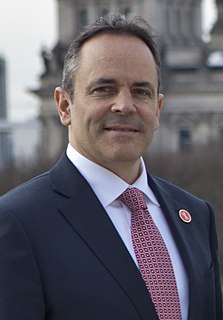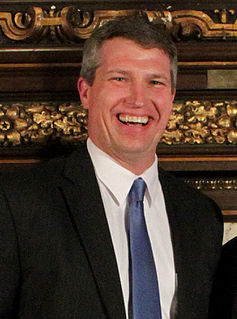A Quote by Frederic Bastiat
Who then would not like to see these benefits flow upon the world from the law, as from an inexhaustible source? But is it possible? Whence does the State draw those resources that it is urged to dispense by way of benefits to individuals? Is it not from the individuals themselves? How, then, can these resources be increased by passing through the hands of a parasitic and voracious intermediary?
Related Quotes
We have to live with the rest of the world. And it's a mistake, in my view. Trade has generally developed in this country. We actually export 12 or 13 percent of our GDP. It was only 5 percent in 1970. But it benefits us. It benefits the rest of the world. It doesn't benefit the steelworker maybe in Ohio. And that's the problem that has to be addressed, because when you have something that's good for society, but terribly harmful for given individuals, we have got to make sure those individuals are taken care of.
Hackman's paradox: Groups have natural advantages: they have more resources than individuals; greater diversity of resources; more flexibility in deploying the resources; many opportunities for collective learning; and, the potential for synergy. Yet studies show that their actual performance often is subpar relative to "nominal" groups (i.e. individuals given the same task but their results are pooled.) The two most common reasons: groups are assigned work that is better done by individuals or are structured in ways that cap their full potential.
Through intense deep meditation you reach a state that is beyond thought, beyond change, beyond imagination, beyond differences and duality. Once you can stay in that state for a while and come out of it without losing any of it, then the inner divine love will begin to pour through you. You will not see people as different, separate individuals. You will see your own Self in everyone around you. Then the flow of love from within you will be constant and unbroken.
Corporate governance is concerned with holding the balance between economic and social goals and between individual and communal goals. The governance framework is there to encourage the efficient use of resources and equally to require accountability for the stewardship of those resources. The aim is to align as nearly as possible the interests of individuals, corporations and society.
Some might complain that nuclear disarmament is little more than a dream. But that ignores the very tangible benefits disarmament would bring for all humankind. Its success would strengthen international peace and security. It would free up vast and much-needed resources for social and economic development. It would advance the rule of law.
Since scarcity is the basic economic problem, if it does not exist then there is no reason for my economics course. Devoting time to the study of how people use limited resources to fulfill unlimited wants and needs should help us to discover how to best utilize the resources we have at our disposal.
The way in which we can promote peace, is by promoting sustainable management of our resources, equitable distribution of these resources, and that the only way you can actually do that, is that then you have to have a political, economic system that facilitates that. And then you get into the issues of human rights, justice, economic justice, social justice, and good governance or democratic governance. That's how it ties up.




































